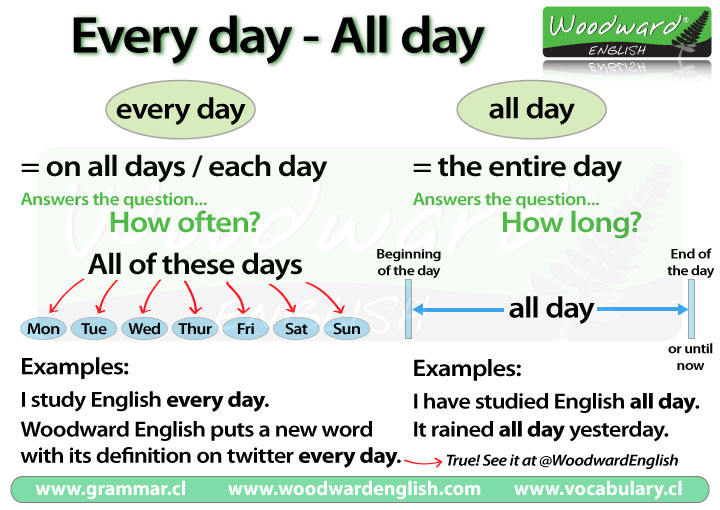Every day vs. All day
English Grammar
A common mistake in English is the correct use of every day and all day.
The difference between every day and all day.
All day = the entire day, or a large part of the day..
Every day = each day; on all of the days over a certain period of time (weeks, months, years). It can also mean regularly.
- I studied all day (= the entire day)
- I studied every day. (= all of the days… Monday, Tuesday, Wednesday etc.)
The same concept applies to other periods of time.
All morning (= the entire morning)
Every morning (= all of the mornings …. this week, this month etc.)
- He spent all morning at the gym. (= the entire morning)
- He goes to the gym every morning. (= all of the mornings of the week)
Sometimes both phrases are used in the same sentence to mean that you did something or something happened non-stop or without pausing.
- I have been studying all day, every day for the last two weeks.
What is something that you do every day?
Summary Chart

Next activities
Try our interactive game to practice the difference between Every day and All day.
See our notes about the difference between every day and everyday and All vs Every vs Each
If you found this English Grammar about Every day vs. All day interesting or useful, let others know about it.
